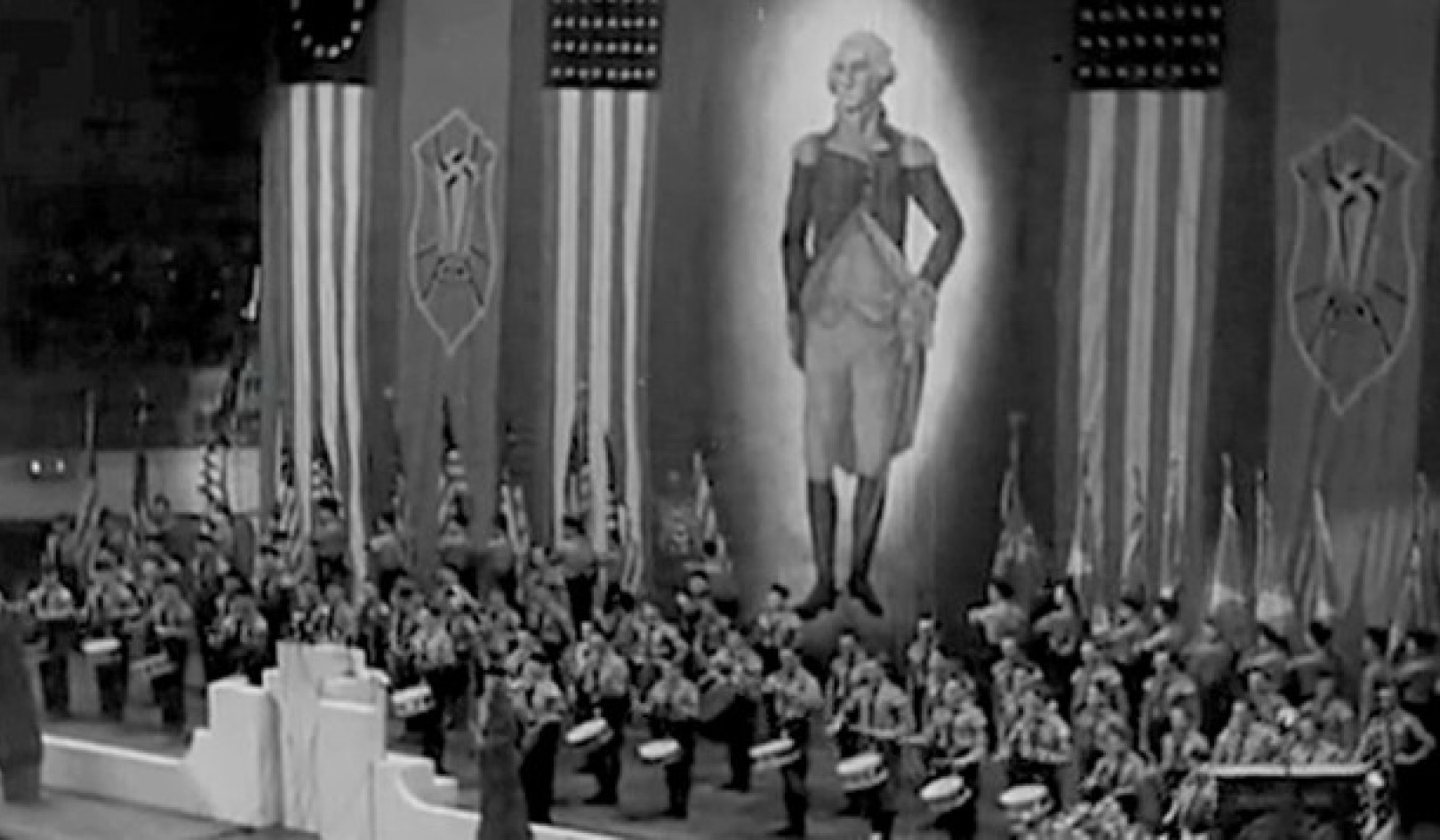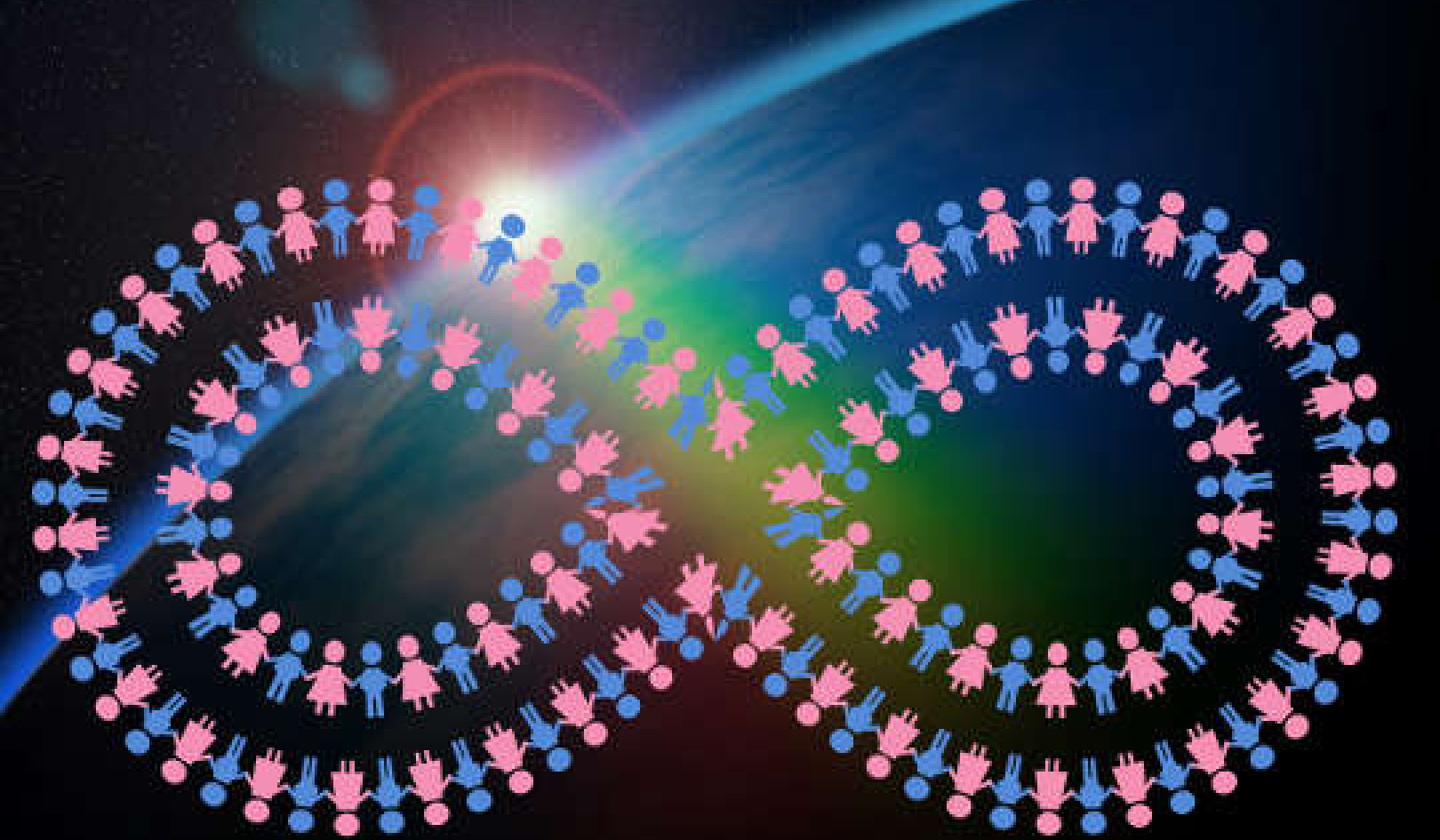
The new thinking we need will not emerge all at once, in one fell swoop. It will come about—and is already coming about—as contemporary thinking is increasingly questioned. There is a step before we can embrace new ideas: it is to put the old ideas on trial.
Human thinking, aside from the rigorous branches of science and philosophy, is dominated by values and beliefs—some conscious, others not. Those that guide our thinking today need to be made conscious, so we could question them, put them on trial. Are they ethical? Are they reasonable? Do they serve our lives and the life of all the people who populate this planet? Do they inspire actions and behavior that enable seven billion people to live in peace, in reasonable well-being, and with a reasonable level of sustainability?
As we shall see, in regard to some of our most widespread values and beliefs, this is not the case.
Six Noxious Personal Beliefs
1. I am what I am—an individual making my way in an uncaring, indifferent, and often hostile world. I am responsible only for ensuring my own interests.
2. I owe allegiance only to one country, and the government is required to look after my own interests.
3. The value of everything, including human beings, can be calculated in terms of money. What every economy needs is growth, and what every person wants is to get rich.
4. Newer is always better. It is desirable, and for the economy even necessary, to buy and use the latest products and technologies. They make our economy grow and then everybody is better off.
5. The world will run the way it has always been running; crisis is a temporary disturbance after which business will again operate as usual.
6. The long-term future is none of my business. Why should I worry about the next generation? Every generation, like every person, has to look after itself.
Five Lethal Cultural Beliefs
Some outdated beliefs are shared by entire communities and cultures. They need to be examined in greater detail.
1. The Neolithic Illusion: Nature Is Inexhaustible
The belief that nature is a limitless resource and provides an infinite sink for waste goes back thousands of years. Originally, the historic belief in the inexhaustibility of nature was understandable and innocuous. Human tribes and groups did not overstep the limits of nature’s capacity to regenerate the required resources; they lived in balance with their environment.
This changed with the advent of the Neolithic Age, about 10,000 years ago. In the Fertile Crescent, now the Middle East, people were not content to live within the rhythms and cycles of nature, but sought ways to harness the forces of their environment. In some places, such as ancient Sumer, human practices had vexing consequences. In deforested lands, flash floods washed away irrigation channels and dams, and left fields arid.
In the course of millennia of cultivation, the Fertile Crescent of biblical times became an arid region, dominated by sandy desert. Persisting in the Neolithic Illusion would be lethal. It would lead to the overuse of vital resources and the overload of nature’s self-regenerative cycles.
The overuse of natural resources is impacting the health and the very survival of more and more people. The resilience of our ecosystems is impaired by human activity. Even more dramatically, in a matter of a few years there may not be sufficient resources to feed all the people in the world. There are 3 billion malnourished people today, and when population peaks at around 9 billion, this figure could easily double.
2. Social Darwinism: The Ideology of Competitive Fitness
Another age-old belief, the idea that competition is the basis of all life, was given fresh impetus by Darwin’s theory of evolution through natural selection. In classical Darwinism, the entire evolution of life from unicellular organisms to higher primates is determined by genetic mutation guided by natural selection. The principal mechanism of evolution is the survival of the fittest and the militant strategy of the selfish gene.
The social application of this theory, known as Social Darwinism,holds that in society, as in nature, a process of competitive selection eliminates the unfit; that is, only the fit survive. This is taken to mean that if we want to survive, we have to be fit for the struggle for life—fitter than our competitors. In this context, fitness is not determined by our genes. It is a personal and cultural trait, such as shrewdness, daring, ambition, and the ability to acquire money and put it to work.
In the 1930s and early 1940s, Social Darwinism was an inspiration of the Nazi ideology. It was put forward as a justification for the genocide of Jews, Slavs, and Gypsies. The fitness—defined as the racial purity—of the Aryan race was to be preserved at all costs. In our day, Social Darwinism has not disappeared, although it is not as virulent as in Nazi Germany.
In today’s world, the struggle for survival also emerges in the subtler but equally merciless struggle of competitors in business. In this struggle, fitness rewards corporate executives, international financiers, and speculators: they become rich and powerful. The resulting gap between rich and poor creates frustration and leads to violence, but the “fit” largely ignore these consequences. The economic variant of Social Darwinism is as lethal as its military variant.
3. Market Fundamentalism: ?Whatever the Question, the Market Is the Answer
In the industrialized world, mainstream business and political leaders elevate the market to the status of a tribal god. They accept pollution and climate change as the unavoidable costs of competition on the market; they sacrifice to it farmlands, forests, wetlands and prairies, ecosystems and watersheds. They justify their stance by maintaining that the market distributes the benefits, so if my company or my country’s economy does well, other companies and countries will also do well.
The “ideology of the market”—which, in practice becomes the idolatry of the market—rests on a handful of fundamental beliefs.
• All human needs and wants can be expressed in monetary terms and can enter the market as a form of demand with corresponding supply. Satisfying demand fuels the economy and is good for everybody.
• Satisfying needs and wants has no absolute limits. There are no insuperable human, financial, or natural limits to the conversion of needs and wants into salable commodities.
• Competition on the open market is both necessary and good: it is the governing principle of all economic and social relations.
• The freedom to compete on the market is the basis of human liberty and the foundation of social and economic justice.
These are the tenets of market fundamentalism, and they are wrong. They fail to take into account, first, that we live on a small planet with finite human and natural resources and a finite capacity to absorb the waste and pollution that accompanies most forms of industrial production, and, second, that competition in the market favors the rich at the expense of the poor.
Everybody knows the adverse effects of waste and pollution; we see them on the climate; on the quality of air, water, and land; and on the regenerative capacity of crops, pastures, fishing grounds, and forests. Economists, in turn, know that the market distributes benefits only under conditions of near-perfect competition, where the playing field is level and all players have more or less the same number of chips. It is evident that in today’s world the field is far from level and the chips are far from evenly distributed. Even entering the market requires money, and with few, if notable, exceptions, money in the form of credit is accessible only to those who already have money, or can offer substantial collateral.
Market fundamentalism is a lethal cultural belief. Our finite planet sets limits on indiscriminate forms of economic growth, and the current market economy is racing toward those limits. The rich, though fewer in number, are still becoming richer, and the tidal waves of poverty keep rising. The economic and social system of the world is becoming dangerously unbalanced.
4. Consumerism: The More You Have, the Better You Are
This typically modern belief justifies the struggle for profit and wealth. It posits a direct relationship between the size of our wallet, as demonstrated by our ability to acquire material possessions, and our personal worth as the owner of the wallet and possessor of the goods money can buy.
But consumerism is another lethal cultural belief. It leads to overconsumption and resource depletion, and is neither healthy nor sustainable. The hoarding of material possessions by an individual, like the single-minded pursuit of natural and financial resources by a country, is a sign of insecurity, not intelligence.
5. Militarism: The Way to Peace Is through War
The ancient Romans had a saying: If you aspire to peace, prepare for war. This matched their conditions and experience. The Romans had a worldwide empire, with rebellious peoples and cultures within and barbarian tribes at the periphery. Maintaining this empire required a constant exercise of military power.
Today the nature of power is very different, but the belief about war is much the same. Like Rome in classical times, the United States is a global power, but one that is economic rather than political. Maintaining that position of global strength requires not armed enforcement but fair and sustainable relations between the nations of the world, and the entire human system and its life-supporting ecology.
War is not the way to achieve peace and sustainability. Instead of military spending, the financial resources of states would be better spent on ensuring human well-being, and, for many populations, even bare survival. According to UN estimates, starvation and the worst forms of malnutrition could be eliminated from the face of the Earth with an annual investment of about $19 billion; shelter could be provided for the world’s homeless for $21 billion; clean water could be provided for everyone for about $10 billion; deforestation could be halted for $7 billion; global warming could be prevented for $8 billion, and soil erosion for $24 billion.
Investing in such programs for a period of ten years would go a long way toward alleviating frustration and mitigating resentment in the world, and would prove far more effective in paving the way to stability and peace than funding military campaigns to attack “rogue” states and threaten uncooperative regimes.
The Neolithic Illusion, Social Darwinism, Market Fundamentalism, Consumerism, and Militarism are powerful beliefs we would be wise to forgo and forget. They need to be put on trial, subjected to impartial and objective scrutiny. As long as they dominate the minds of decision makers, and as long as there is no critical mass of new-thinking people in civil society, the dream of cocreating a peaceful, fair, and sustainable Akashic Age will remain nothing more than a dream.
Reprinted with permission of Inner Traditions, Inc.
©2013 by Ervin Laszlo and Kingsley L. Dennis.
All Rights Reserved. www.innertraditions.com
Article Source
 Dawn of the Akashic Age: New Consciousness, Quantum Resonance, and the Future of the World
Dawn of the Akashic Age: New Consciousness, Quantum Resonance, and the Future of the World
by Ervin Laszlo and Kingsley L. Dennis.
Click here for more info and/or to order this book.
About the Authors
 Ervin Laszlo is a Hungarian philosopher of science, systems theorist, integral theorist, and classical pianist. Twice nominated for the Nobel Peace Prize, he has authored more than 75 books, which have been translated into nineteen languages, and has published in excess of four hundred articles and research papers, including six volumes of piano recordings. He is the recipient of the highest degree in philosophy and human sciences from the Sorbonne, the University of Paris, as well as of the coveted Artist Diploma of the Franz Liszt Academy of Budapest. Additional prizes and awards include four honorary doctorates. Visit his website at http://ervinlaszlo.com.
Ervin Laszlo is a Hungarian philosopher of science, systems theorist, integral theorist, and classical pianist. Twice nominated for the Nobel Peace Prize, he has authored more than 75 books, which have been translated into nineteen languages, and has published in excess of four hundred articles and research papers, including six volumes of piano recordings. He is the recipient of the highest degree in philosophy and human sciences from the Sorbonne, the University of Paris, as well as of the coveted Artist Diploma of the Franz Liszt Academy of Budapest. Additional prizes and awards include four honorary doctorates. Visit his website at http://ervinlaszlo.com.
Watch a video: Sustainable Transformation: An Interview with Ervin Laszlo
 Kingsley L. Dennis, PhD, is a sociologist, researcher, and writer. He co-authored 'After the Car' (Polity, 2009), which examines post-peak oil societies and mobility. He is also the author of 'The Struggle for Your Mind: Conscious Evolution & The Battle to Control How We Think' (2012). Kingsley is also the co-editor of 'The New Science & Spirituality Reader'(2012). He is now collaborating with the new paradigm Giordano Bruno GlobalShift University, is a co-initiator of the Worldshift Movement and a co-founder of WorldShift International. Kingsley L. Dennis is the author of numerous articles on complexity theory, social technologies, new media communications, and conscious evolution. Visit his blog at:http://betweenbothworlds.blogspot.com/ He can be contacted at his personal website: www.kingsleydennis.com.
Kingsley L. Dennis, PhD, is a sociologist, researcher, and writer. He co-authored 'After the Car' (Polity, 2009), which examines post-peak oil societies and mobility. He is also the author of 'The Struggle for Your Mind: Conscious Evolution & The Battle to Control How We Think' (2012). Kingsley is also the co-editor of 'The New Science & Spirituality Reader'(2012). He is now collaborating with the new paradigm Giordano Bruno GlobalShift University, is a co-initiator of the Worldshift Movement and a co-founder of WorldShift International. Kingsley L. Dennis is the author of numerous articles on complexity theory, social technologies, new media communications, and conscious evolution. Visit his blog at:http://betweenbothworlds.blogspot.com/ He can be contacted at his personal website: www.kingsleydennis.com.
Watch a video with Kingsley L. Dennis: Entering the Akashic Age?
























